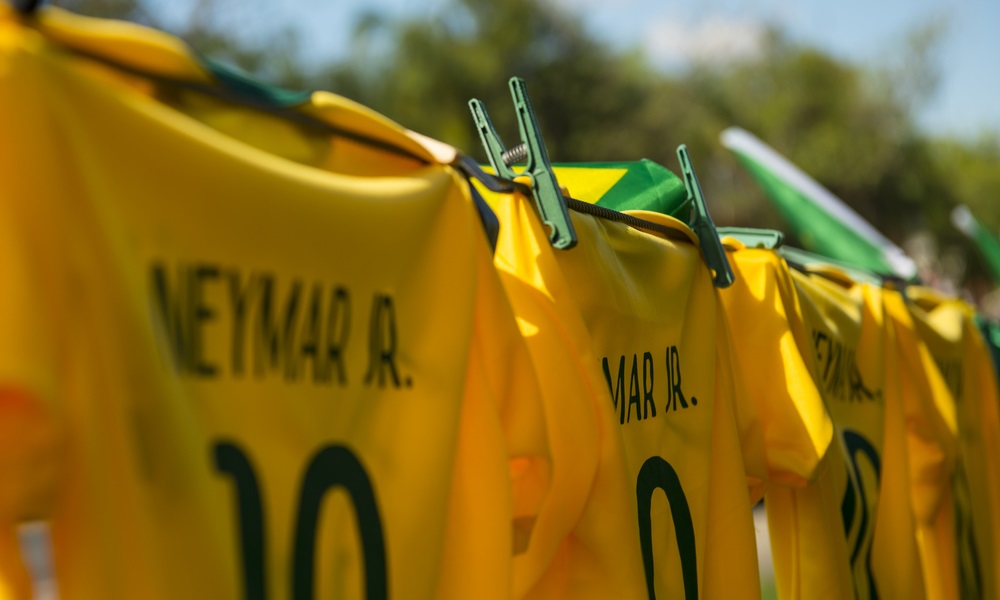In the race for ownership of a trademark, the principles of loyalty and business ethics prevail over the ‘first to file rule’ according to which whoever gets there first and is the quickest to register the mark holds exclusive rights. We look at the ‘Neymar’ case, in which bad faith in registering the trademark led the court to declare it invalid.
In a judgement handed down on May 14, 2019 in Case T-795/17 (Carlos Moreira v EUIPO with Neymar da Silva Santos Junior, a Brazilian football player, acting as intervener) the General Court of the European Union applied Article 52(1)(b), now Article 59(1)(b), of the EU Trademark Regulation to the case. According to this article, a trademark registration can be declared invalid if the applicant was acting in bad faith when he filed the application. The situation in the ‘Neymar’ case involved a trademark that coincided with the name under which a particular sportsperson is internationally known. The intention (as was deduced objectively from the concrete circumstances of the case) was to free-ride on the reputation of the name of that sports personality and to take financial advantage of that reputation.
The General Court confirmed that the concept of bad faith is not defined, delimited or even described in any way in the European trademark legislation but is rather an open concept that generically refers to any conduct that departs from accepted principles of ethical behavior or honest commercial business practices. In particular, the court held that bad faith on the part of the trademark applicant refers to conduct that, objectively analyzed in the light of the specific circumstances and the concrete factual elements of the case, reveals a dishonest intention or other sinister motive.
The General Court has also confirmed that there are a wide range of factors that can be taken into consideration in order to determine whether the applicant departed from accepted principles of ethical behavior or honest commercial business practices when he filed the application for registration. These include the fact that the sign applied for coincides with a previous sign through which another person or entity usually identifies or promotes itself or its merchandise in trade and that enjoys a reputation in the economic sector concerned, the circumstances under which the subsequent mark was chosen by the applicant, the use made of this mark since its creation/registration, the commercial logic underlying the application and the chronology of events leading up to the filing of the application.
The singularity of this judgement is that the General Court applied the bad faith regime to a situation in which someone sought registration as a EU trademark of a word that coincided with the name under which a non-European rising football star, that was about to continue his career in an European club, was already known in European football circles at the time the application was filed.
The dispute arose from an application filed at EUIPO in December 2012 by a Portuguese individual, Mr. Carlos Moreira, for the trademark “Neymar” for clothing and footwear. The mark was registered on April 2013.
On February 2016, Mr. Neymar da Silva Santos Júnior, filed an application for a declaration of invalidity against said registration at the EUIPO. On November 2016, the Cancellation Division of the EUIPO upheld said application. On January 2017, the applicant filed a notice of appeal with EUIPO against the decision of the Cancellation Division. The Board of Appeal of EUIPO confirmed the decision of the Cancellation Division and dismissed the appeal. On November 2017, Mr. Carlos Moreira lodged an appeal at the General Court of the European Union. Mr. Carlos Moreira claimed that the EUIPO Board of Appeal was wrong to find that he was acting in bad faith when he filed the application for registration of the word Neymar for clothing. He alleged that (i) the Board of Appeal’s had incorrectly assessed that when he applied for the registration he knew that Mr. Neymar da Silva Santos Júnior was a rising star in football whose talent was recognized internationally, and that (ii) the Board of Appeal had incorrectly assessed that, when he filed the application for the contested mark, he had no motive other than to exploit Mr. Neymar da Silva Santos Júnior’s renown to benefit from it.
The General Court found that Mr. Neymar da Silva Santos Júnior had submitted to the proceedings a portfolio of evidence (press articles and website excerpts from 2009 to 2012) showing that he is a Brazilian footballer internationally known under his first name, Neymar, that he was already known in Europe when Mr. Carlos Moreira filed the application for “Neymar” at EUIPO, in particular for his performances for the Brazilian national football team and that he had drawn the attention of top-flight clubs in Europe in view of future recruitment several years before his actual transfer to FC Barcelona in 2013.
The General Court also found that since Mr. Carlos Moreira stated at the hearing that he knew the world of football, it was inconceivable that he had not been informed of Mr. Neymar da Silva Santos Júnior’s existence at the time he filed the application for the contested mark and that he was not aware that Mr. Neymar da Silva Santos Júnior was already a professional footballer whose talent was recognized internationally that would soon be transferred to a very important European club.
In addition, the General Court considered that Mr. Carlos Moreira put forward no convincing argument to contradict the EUIPO Board of Appeal’s findings that, in the circumstances of the present case, there is no logical explanation for his decision to file the application for the mark “Neymar” other than the desire to exploit Mr. Neymar da Silva Santos Júnior renown and benefit from it.
The Court also considered that the Board of Appeal had not relied on mere speculation to reach this finding but had relied instead on objective aspects, namely a portfolio of evidence consisting of press and internet articles which led it to determine that the intervener was a very talented footballer who already had global standing in the world of football at the relevant date. It then deduced from another objective element — namely, the fact that Mr. Carlos Moreira had filed an application for registration of the word mark “IKER CASILLAS” on the same day as the application for registration of the word “Neymar” was filed — that Mr. Carlos Moreira possessed more than just a little knowledge of the world of football.
According to the Court, the EUIPO Board of Appeal was entitled to deduce from the particular circumstances of the case that the real purpose of the commercial logic behind Mr. Carlos Moreira application for registration of an EU trade mark was to ‘free-ride’ on Mr. Neymar da Silva Santos Júnior’s reputation and to take advantage of that reputation.
The General Court considered that the finding of bad faith on the part of Mr. Carlos Moreira could not be overturned by his claims that (i) he did not seek to have the contested mark registered so that it could be invoked against Mr. Neymar da Silva Santos Júnior; (ii) any possible finding of bad faith could only have been established if he had continued to pursue the procedure for registration despite Mr. Neymar da Silva Santos Júnior opposition; and (iii) the word element ‘Neymar’ was not protected in Europe or anywhere as a trade mark when he applied for its registration before EUIPO.
According to the EU General Court, those arguments are irrelevant and none of them are capable of challenging the finding that Mr. Carlos Moreira was acting in bad faith when he filed the application for registration of the contested mark. According to the Court, this finding is exclusively based on Mr. Carlos Moreira dishonest intention at the time of filing and such assessment itself follows from the fact that the application was filed deliberately with the intention of creating an association with Mr. Neymar da Silva Santos Júnior’s name in order to benefit from its attractive force.
The fact that someone that has knowledge that a given name (word, figure or logo) used in trade (but not registered) by a third party is well-known and enjoys reputation and who files a registration for an identical or confusingly similar sign, constitutes a strong indication that the commercial logic behind the application is to free-ride on its reputation. The applicant’s argument that it was a coincidence and claim to the “first to file” rule may not be enough to justify such behavior and to prevent Courts and trademark authorities from finding that such conduct does not comply with the principles of ethical behavior or honest commercial business practices.
In short: in European trademark law, principles of ethical behavior or honest commercial business practices prevail over the “first to file” rule.
Garrigues Intellectual Property Department






